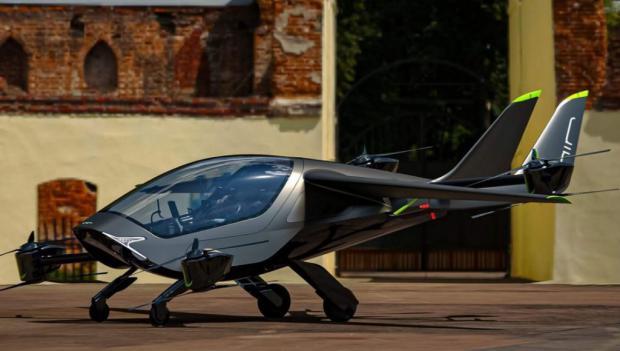
Breaking News
DRINK 1 CUP Before Bed for a Smaller Waist
 Nano-magnets may defeat bone cancer and help you heal
Nano-magnets may defeat bone cancer and help you heal
 Dan Bongino Officially Leaves FBI After One-Year Tenure, Says Time at the Bureau Was...
Dan Bongino Officially Leaves FBI After One-Year Tenure, Says Time at the Bureau Was...
 WATCH: Maduro Speaks as He's Perp Walked Through DEA Headquarters in New York
WATCH: Maduro Speaks as He's Perp Walked Through DEA Headquarters in New York
Top Tech News
 Laser weapons go mobile on US Army small vehicles
Laser weapons go mobile on US Army small vehicles
 EngineAI T800: Born to Disrupt! #EngineAI #robotics #newtechnology #newproduct
EngineAI T800: Born to Disrupt! #EngineAI #robotics #newtechnology #newproduct
 This Silicon Anode Breakthrough Could Mark A Turning Point For EV Batteries [Update]
This Silicon Anode Breakthrough Could Mark A Turning Point For EV Batteries [Update]
 Travel gadget promises to dry and iron your clothes – totally hands-free
Travel gadget promises to dry and iron your clothes – totally hands-free
 Perfect Aircrete, Kitchen Ingredients.
Perfect Aircrete, Kitchen Ingredients.
 Futuristic pixel-raising display lets you feel what's onscreen
Futuristic pixel-raising display lets you feel what's onscreen
 Cutting-Edge Facility Generates Pure Water and Hydrogen Fuel from Seawater for Mere Pennies
Cutting-Edge Facility Generates Pure Water and Hydrogen Fuel from Seawater for Mere Pennies
 This tiny dev board is packed with features for ambitious makers
This tiny dev board is packed with features for ambitious makers
 Scientists Discover Gel to Regrow Tooth Enamel
Scientists Discover Gel to Regrow Tooth Enamel
 Vitamin C and Dandelion Root Killing Cancer Cells -- as Former CDC Director Calls for COVID-19...
Vitamin C and Dandelion Root Killing Cancer Cells -- as Former CDC Director Calls for COVID-19...
A step closer to flying cars?

A startup from Israel has unveiled its first 'easy-to-operate' two seater flying car, that it hopes will be used to shuttle passengers through city skies as early as 2024.
The all electric vertical takeoff and landing (eVTOL) aircraft will primarily be sold in the US, where the Federal Aviation Authority (FAA) has worked with developers AIR for two years on preparing licensing and regulations to make it legal and safe.
AIR executives say they hope to have approval by the end of 2023 for their AIR ONE vehicle, that is expected to cost 'about the same as a high end road car'.
Very few details about price and availability have been released for the vehicle, which has two seats and can travel up to 110 miles on a single charge.
It will be sold to consumers who will be able to use its 'fly by intent' software, that will allow them to operate it in the air without being trained, or licensed pilots.
AIR raised just under $10 million last year in seed funding, and has been using the funding to run a series of test flights without a pilot or passenger onboard.
The firm has also been building a series of full-size prototypes, required as part of the regulatory process, for rapid testing and changes ahead of approval to fly.
CEO Rani Plaut says their focus is 'purely personal,' unlike over small flying vehicle manufacturers, such as Hyundai and Joby Aviation, which are focused on flying taxis.
An increasing number of investors and aviation companies have piled into the hot but yet-to-be-approved urban air mobility space.



